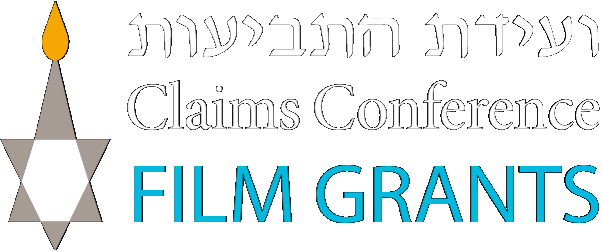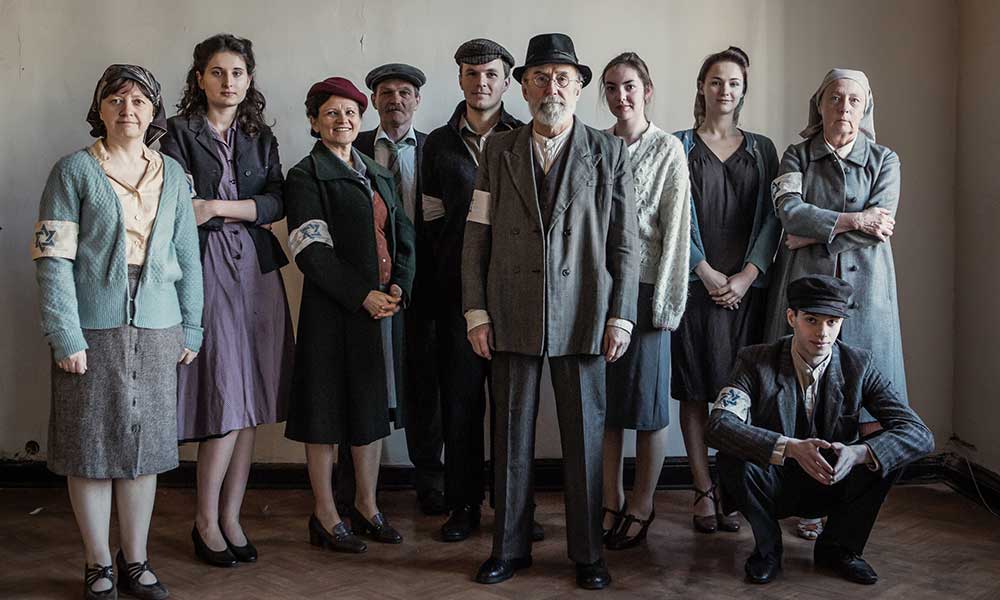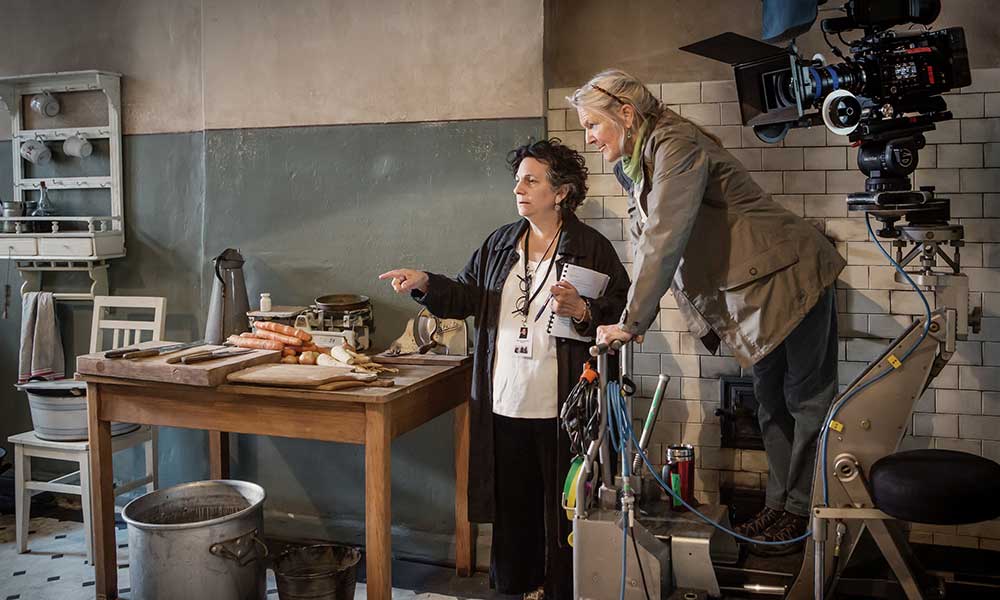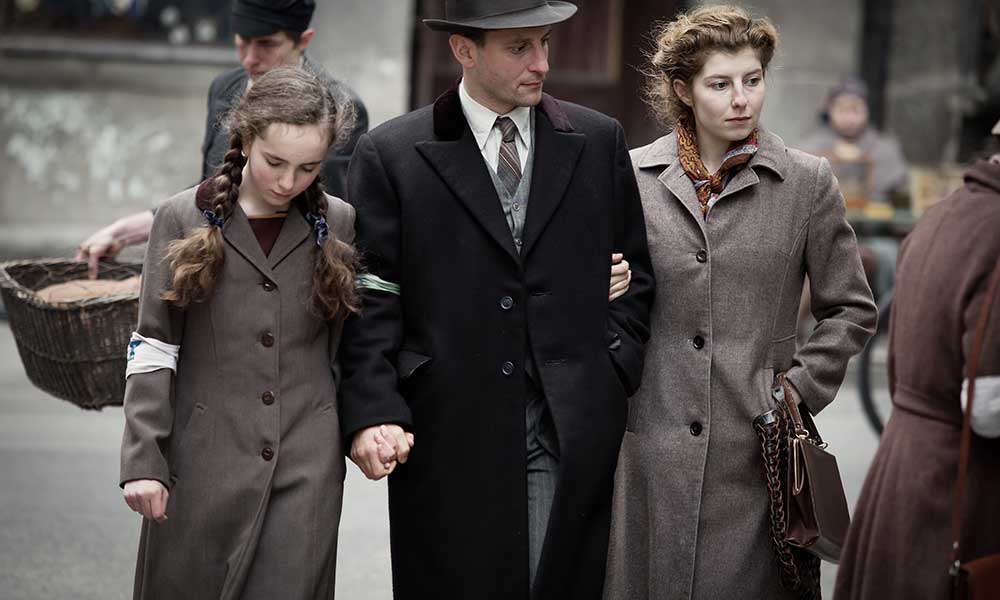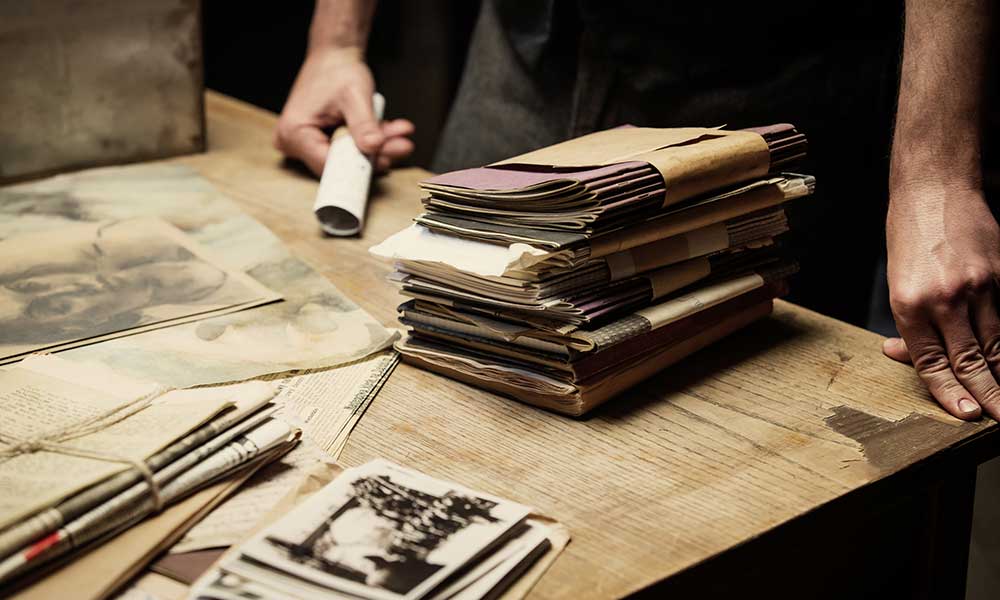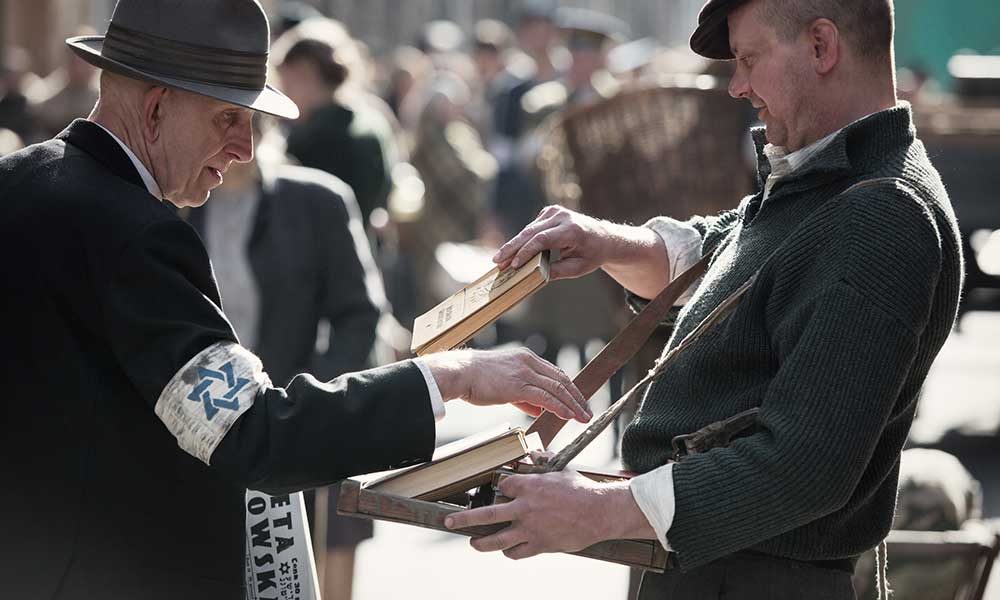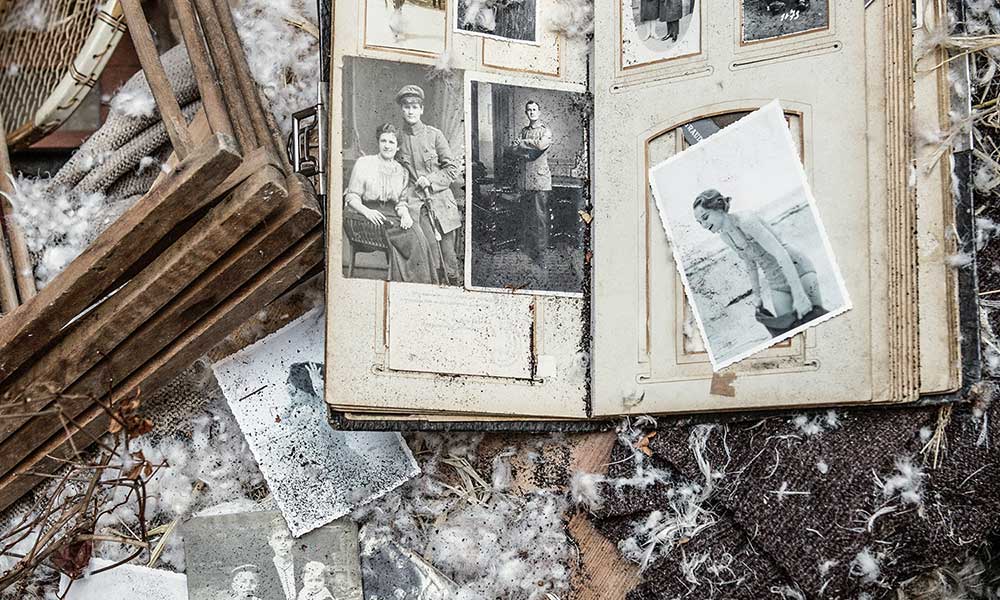Who Will Write Our History, highlights the extraordinary efforts of a group who defied the odds and risked everything so that their archive would survive the war, even if they did not.
Synopsis
In November 1940, days after the Nazis sealed 450,000 Jews in the Warsaw Ghetto, a secret band of journalists, scholars, and community leaders decided to fight back. Led by historian Emanuel Ringelblum and known by the code name Oyneg Shabes, this clandestine group vowed to defeat Nazi lies and propaganda not with guns or fists but with pen and paper. They detailed life in the Ghetto from the Jewish perspective. They commissioned diaries, essays, jokes, poems, and songs. They documented Nazi atrocities with eyewitness accounts. They sent reports of mass murder to London via the Polish underground. Then, as trains deported them to the gas chambers of Treblinka and the Ghetto burned to the ground, they buried 60,000 pages of documentation in the hopes that the archive would survive the war, even if they did not.
Now, for the first time, the story of Emanuel Ringelblum and the Oyneg Shabes archive is told as a feature documentary. Written, produced, and directed by Roberta Grossman and executive produced by Nancy Spielberg, Who Will Write Our History mixes the writings of the archive with new interviews, rarely seen footage, and stunning dramatizations to transport us inside the Ghetto and the lives of these courageous resistance fighters. Featuring the voices of three-time Academy Award® nominee Joan Allen and Academy Award® winner Adrien Brody, the film honors the Oyneg Shabes members’ determination in creating the most important cache of eyewitness accounts to survive the war. It follows their moments of hope, as well as their despair, desperation and anger, sometimes at their fellow Jews as much as their Nazi captors. It captures their humor, longing, hunger, and determination to retain their humanity in the face of unspeakable hardships. Ultimately, through their voices, actions, and real-time experiences, Who Will Write Our History vanquishes those who distort and dehumanize the “Other” in favor of those who stand up, fight back and, as one Oyneg Shabes member writes, “scream the truth to the world.”
Artist Statement
Which side of the story becomes the official narrative? Whose accounts do we elevate to the level of “truth,” and whose do we ignore or even bury? What is real, and what is fake? These are top-of-mind questions in 2018. They also preoccupied a courageous group of resistance fighters imprisoned in the Warsaw Ghetto in World War II. The moment I found out about this secret band of journalists, scholars, and historians, I knew I had to make a film about them. Their story, captured in Who Will Write Our History, is, in my opinion, the most important unknown story of the Holocaust.
Created and led by Polish historian Emanuel Ringelblum, the Oyneg Shabes was an organization of 60+ members engaged in spiritual resistance against the Nazis, fighting hatred, lies and propaganda with pen and paper. They wrote and commissioned diaries, essays, jokes, poems, and songs. They also collected artifacts such as photographs, German pronouncements, labels on Ghetto goods, official and underground newspapers, and more — anything that would help future historians tell the story of the Ghetto from the Jewish point of view, rather than from the Nazi perspective. On the eve of the Warsaw Ghetto Uprising, Oyneg Shabes members buried 60,000 pages of documentation in the ground in the hopes that the archive would survive, even if they did not, to “scream the truth to the world.”
The magnitude of this story drew remarkably talented people to the project. First and foremost was historian Samuel D. Kassow, whose book Who Will Write Our History? details the creation of the secret archive of the Warsaw Ghetto. From the beginning, Sam was my advisor and partner. We were joined by my frequent collaborator Nancy Spielberg, who has masterful storytelling instincts in her DNA. World-class scholars in Poland, the United States, and Israel advised on the script. Three-time Academy Award nominated actress Joan Allen and Academy Award winner Adrien Brody voiced the film’s two main characters. The documentary is a co-production between the US-based Katahdin Productions and the Polish company Match&Spark, which brought in amazing actors, production designers, and crew for five weeks of shooting in Poland.
In order to ground the film’s cinematically dramatized scenes in historical accuracy, the production design team worked with scholars for six months before we started filming. This process ensured that every pen, shoelace, and wall color was spot-on for the period. The words spoken by actors in the film come directly from the writing of the Oyneg Shabes Archive and/or in the case of the film’s narrator, Rachel Auerbach, from her post-war writing. As with the historical people they portray, the actors switch freely from speaking Yiddish to Polish in the film.
While striving to avoid “tricks” that would “fool” an audience, the film does employ transparent visual effects such as compositing actors shot against green screen with archival footage. The goal here is to bring the past to life while balancing against the high standards for veracity in a documentary. To achieve this goal, we blended archival and dramatic footage, pulling from the tools of dramatic feature storytelling. While fully aware of the complexity of these techniques, I reached for these visual tools because Who Will Write Our History tells the story of a place that no longer exists (the Warsaw Ghetto), about people who are long dead, and about a period of history captured primarily in black-and-white film and mostly by Nazi propaganda photographers and cameramen. I want people not simply to learn from the film, but to be engaged and deeply moved.
In 1999, three document collections from Poland were included in UNESCO’s Memory of the World Register: the masterpieces of Chopin, the scientific works of Copernicus and the Oyneg Shabes Archive. Historians concur that the Oyneg Shabes Archive is the richest cache of eyewitness, contemporaneous accounts to survive the Holocaust. Despite its importance, the archive remains largely unknown outside academic circles. It is my hope that Who Will Write Our History will change that in the way that only a film can do, by making the story accessible to millions of people around the world.
– Roberta Grossman, November 18, 2018
Festivals, Screenings, & Awards
San Francisco Jewish Film Festival
– Winner: Audience Award, Documentary Feature
Twin Cities Film Fest
– Winner: Best Documentary
New York Jewish Film Festival
69th Berlinale Special
Year
2018
Production Country
USA
Production Company
Katahdin Productions
Distribution
Abramorama (all media)
Next Film (theatrical)
Giant Pictures (world-wide) (video)
Midas Filmes (all media)
Subject Region
Poland, Germany
Runtime
95 minutes
Writer, Director and Producer
Roberta Grossman
Executive Producers
Nancy Spielberg
Ronald S. Lauder
Al Berg
Ori And Mirit Eisen
Anna Różalska
Philippa Kowarsky
Cinematographer
Dyanna Taylor
Editor
Chris Callister
Ondine Rarey
Composer
Todd Boekelheide
Production Design
Frank Gampel
Marek Warszewski
